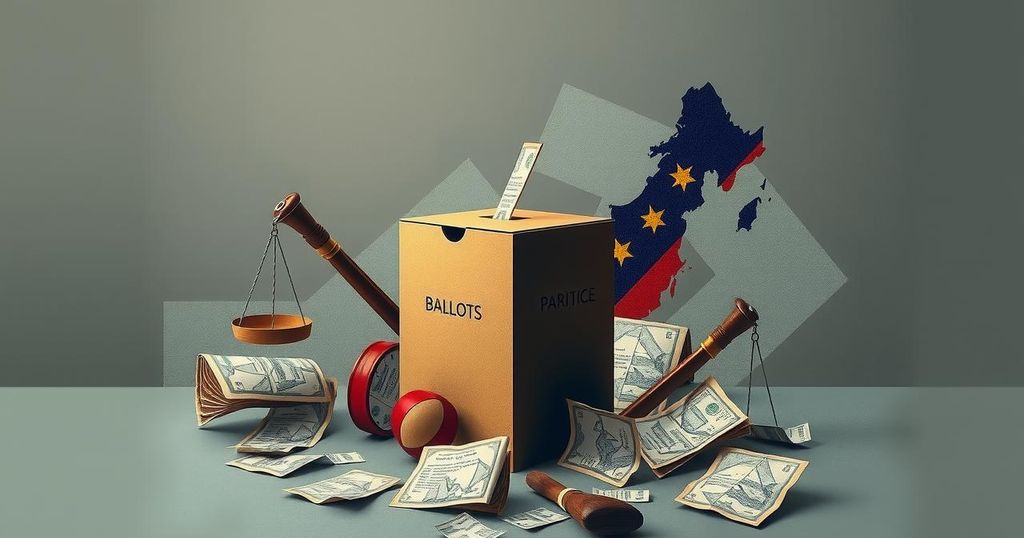Ecuador’s Election: Implications of a Leftist Victory for U.S. Diplomacy
Ecuador’s recent election results indicate a potential shift toward leftist rule, with Luisa Gonzalez closely trailing center-right president Daniel Noboa. The election’s outcome is crucial for U.S. interests, given Gonzalez’s alignment with former president Rafael Correa, known for his anti-U.S. stance. The upcoming runoff will be determined significantly by the support of the indigenous Pachakutik party, and Noboa must act swiftly to address key issues to secure victory.
Ecuador’s recent election results spell potential trouble for the United States and democratic aspirations within Latin America. The populist party led by former president Rafael Correa performed unexpectedly well, placing them in a strong position ahead of the April 13 runoff election. Contrary to initial predictions of a decisive win for center-right president Daniel Noboa, he garnered only 44.2% of the vote against Correa-backed Luisa Gonzalez, who received 43.9%.
The outcome of this election is crucial for the U.S. and its interests in Latin America. A victory for Gonzalez would likely result in a significant shift leftward in Ecuador’s governance, aligning more closely with leftist ideologies and movements, often linked to regimes in Venezuela and Cuba. Former Ecuadoran president Jamil Mahuad remarked, “She is in tune with the socialism of the 21st century movement.”
Rafael Correa, who served as Ecuador’s president from 2007 to 2017 and is known for his anti-U.S. sentiments stemming from personal experiences, may influence Gonzalez’s presidency. He faced serious corruption charges prompting him to flee Ecuador, and his past policies, such as dismantling the U.S. anti-narcotics base in Manta, have raised concerns about future governance.
Political analyst Santiago Basabe indicated that Gonzalez has a stronger chance to win the runoff, given the significant share of votes collected by both her and Noboa. In this context, the indigenous Pachakutik party’s support is pivotal, as it could potentially shift towards Gonzalez.
Jaime Durán Barba, a political consultant, expressed surprise at Noboa’s weaker-than-anticipated performance. He noted the ideological diversity within the Pachakutik electorate, indicating they might not uniformly support Gonzalez due to past grievances with Correa.
Foreseeing the next two months, Noboa is urged to address pressing issues such as drug-related violence and the energy crisis to secure votes, particularly from indigenous communities. A record high in homicide rates underscores the urgency of effective governance.
Finally, a potential win for Correa’s candidate poses significant challenges for Washington and Latin America, as many Ecuadorians fondly recall the economic growth during Correa’s tenure, often overlooking his problematic governance that permitted the infiltration of organized crime. Should Correa’s candidate prevail, it could lead to heightened diplomatic complications for the United States in the region.
The electoral prospects in Ecuador present critical implications for U.S. diplomatic relations and broader democratic integrity in Latin America. The possible return of Rafael Correa’s influence through Luisa Gonzalez would likely steer Ecuador towards leftist policies reminiscent of his tenure, raising alarms for U.S. interests engaged in the region. Urgent action is needed from Noboa to secure his presidency and counter the leftward shift in Ecuadorian politics.
Original Source: www.miamiherald.com




Post Comment